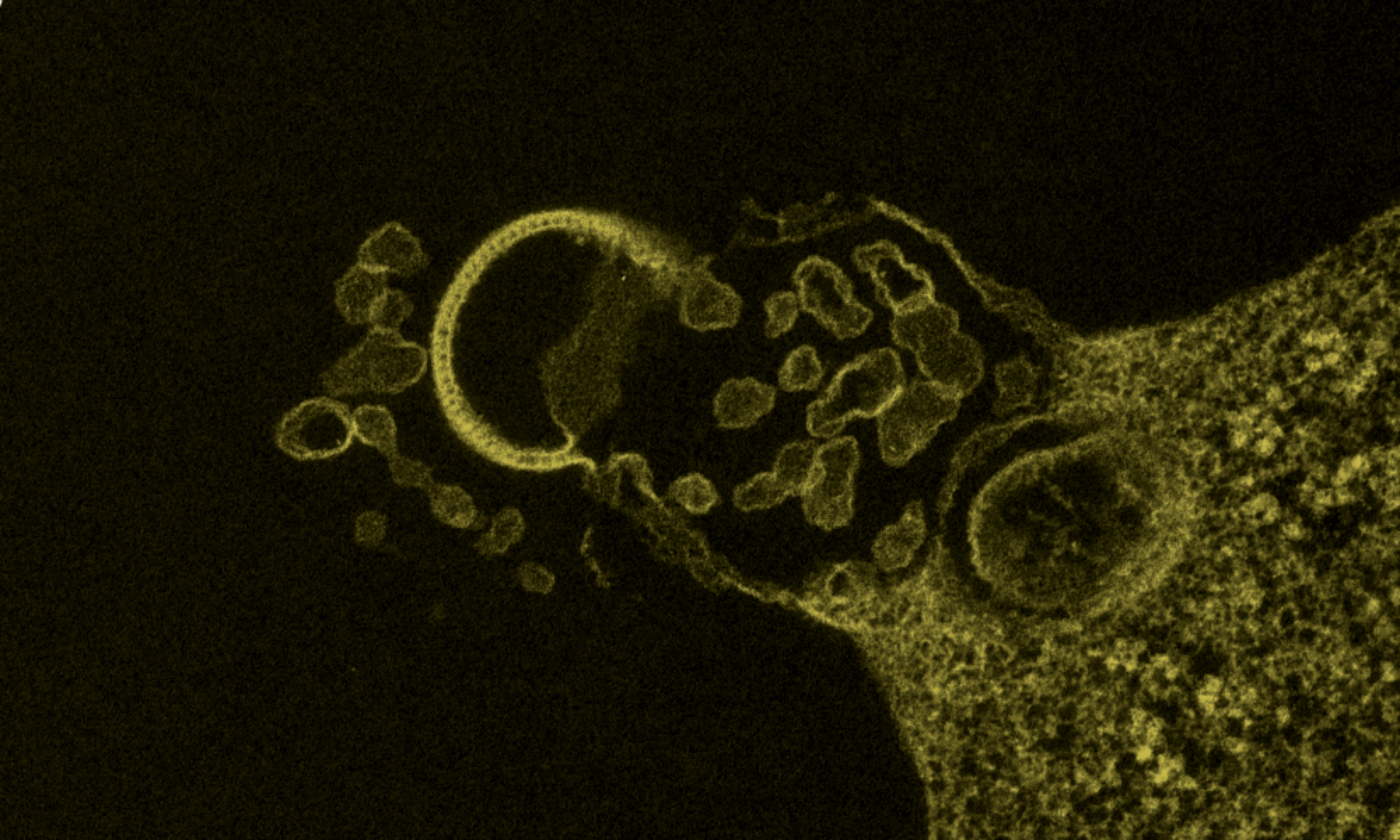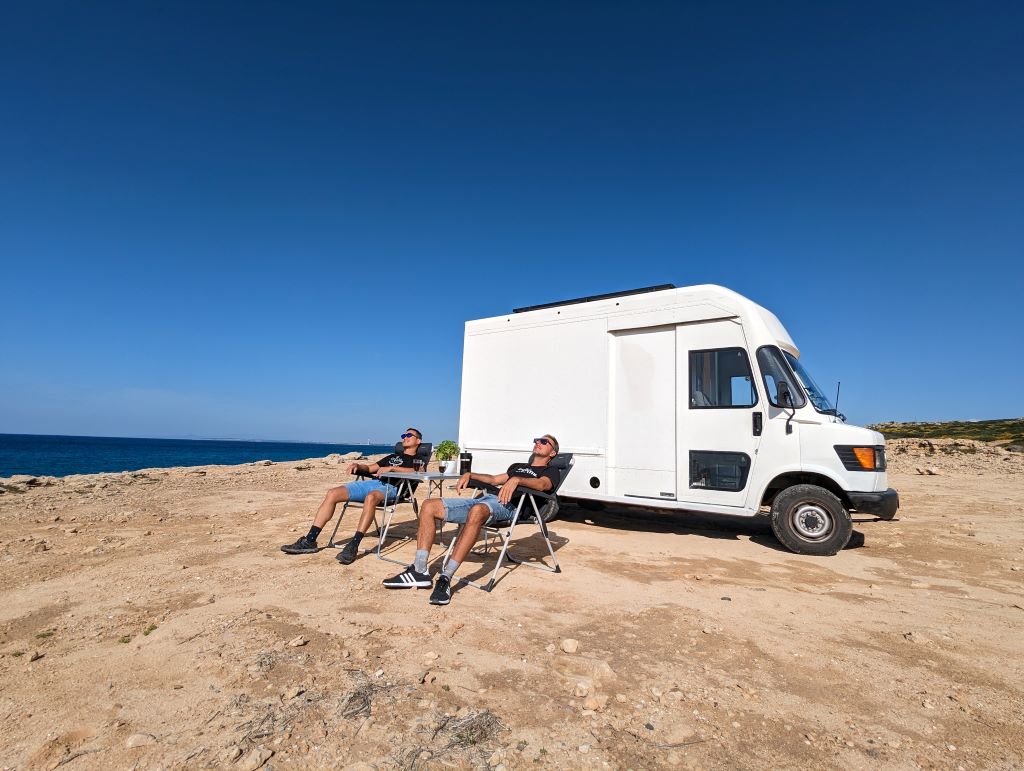
When I started my own lab as a PI, rushing around like a new bumblebee queen trying to establish her nest, I was once asked by a friend, ‘How long haven’t you appreciated the beauty of a wild plant? How long haven’t you watched the night sky and let your thoughts fly with the shooting stars?’ As cliché as it sounds, these questions had ghosted around me for a long time, making me wanting to return to my inner childhood, visiting that Lindenbaum where I dreamt in its rustle.
And then, COVID-19 happened. While I was trapped inside of my house, my contract ended. I was not a queen bee after all. Suddenly toilet paper and flour seemed scarce but time became abundant. It was the first time I picked up composing music, one of my projects in my teens and made a few piano pieces. It was also the first time I could spend all the hours with my partner, Richard, in a small bubble. Together we cooked, gardened, and moved around when the restriction eased a bit. It was funny though, when we had time to do nothing, we began to notice everything that changes slowly. I became aware of the ever changing position of the moon between the constellations, and the sunsets moving along on the horizons. I had learnt the facts in school, of course, but seeing these phenomena with my own eyes really gave me chills.
Life went on. We moved to a new city as I’d got jobs outside of the central dogma of academic career path. But I gradually started to understand time with a new perspective. When Richard told me that he needs to travel and invites me to join him, I said yes. I then quitted my permanent position which I liked and decided that we could live and travel in a van for about one year without worries. Life is short and we want to enjoy it. Why should we wait until some day in the future when we might not even be around?

So the trip began. We bought an old van and built our six-square-metre mansion decorated in a Japanese style (or so we imagined). We mounted the solar panels, a gas oven, water tanks and a dry toilet. We briefly checked and repaired this antique van but we were never totally convinced that it would bring us to the Caucasus and back. However, our wise polish friend assured us, ‘Jest gwiazda jest jazda’ – with the (Mercedes) star it will drive. German engineering, huh?
The van surely drives. We descended to the river bank of Aoos, not knowing if the slope was too steep for the van to climb back; we woke up many mornings to realised we couldn’t start the engine due to diesel leakage; we drove through mountains and lakes in Transylvania whose rocky paths broke bits of its suspension system.
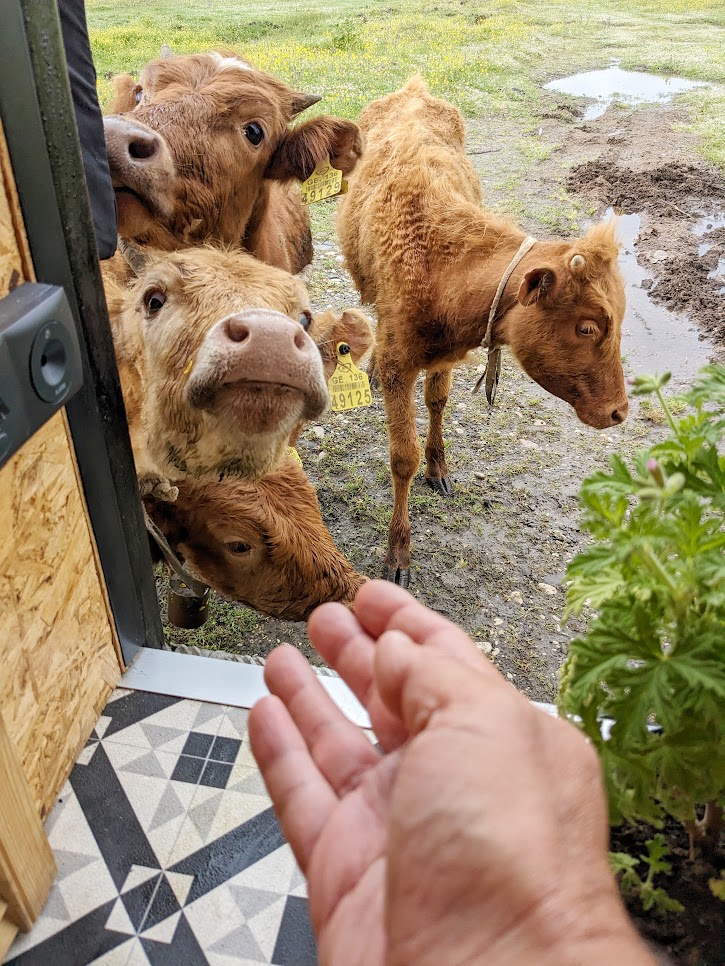
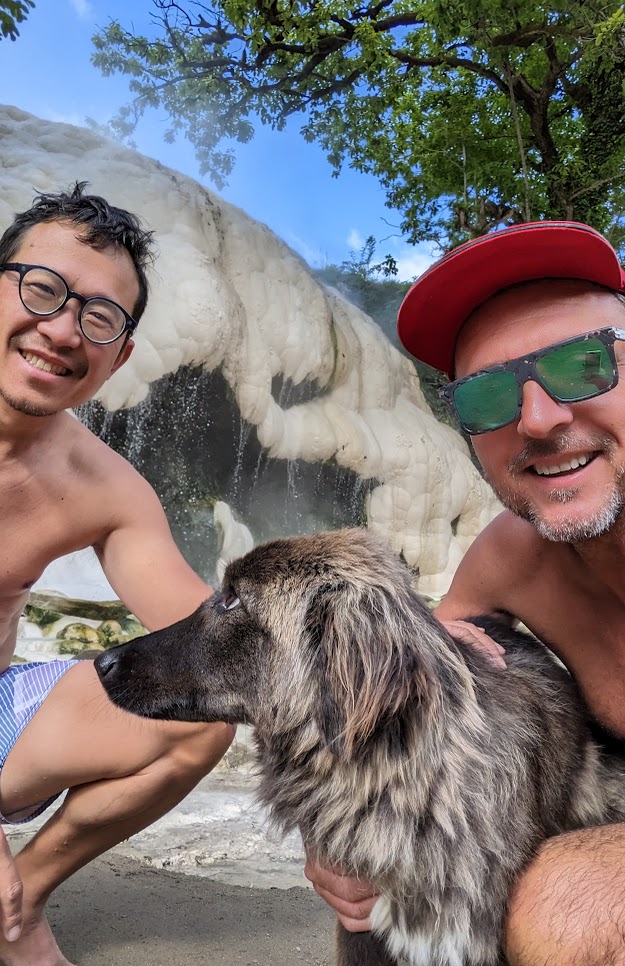
We visited the Blue Eye Spring which pumps tons of clear water that shines as a liquid gem; we passed by the Symphony of the Stones where a gorge sided by hexagonal stone columns, straight and bend, resembling the pipes of a giant’s organ; we hiked on a dry river, which flooded in that evening and destroyed a pool we bathed in. We found fossils in ancient Greek sarcophagus; we tasted natural sparkling water; we observed astonishing colours of rocks and rivers; we walked through valleys with caves that homed people hundreds of years ago.
In Georgia, a fox moved its cubs one by one passing close to us. A few cows scratched against our van; one goat jumped inside to steal some paper bags. We saw free donkeys in Cyprus and wild brown bears in Turkey. And the dogs. There were so many friendly dogs we came upon. I hope they are all doing well.
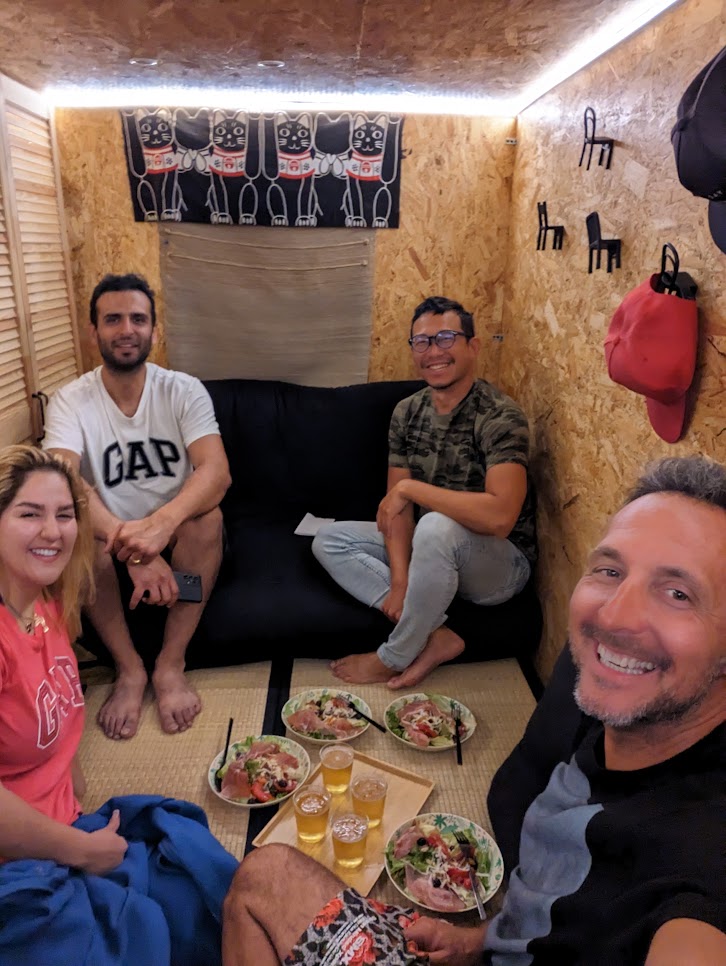
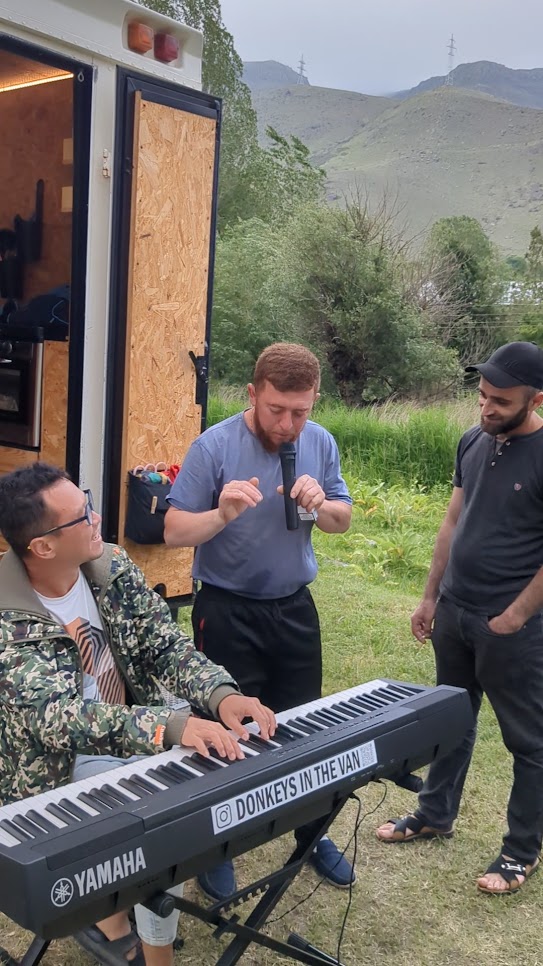
Have I mentioned that I packed a piano? I managed to bring my passion and perform classical piano works at some places where people haven’t had a chance to go to the concert hall. Many were also surprised to hear music from Chopin, Debussy, others and myself (pompous comparison) in the middle of nowhere.
Music binds us. How can I forget the car park in Croatia car park where people surrounded my piano until it was too dark? The lake in Italy where a motorcyclist stopped by and improvised on the piano? The lawn in Armenia where a young American guy with his Kazakhstani girlfriend listened to my music and told their love stories? The village centre in Albania where a music teacher came to share his musical ideas with school pupils? And the busy cross road in Türkiye where I performed to thank for an unexpected lunch from local people we just met?
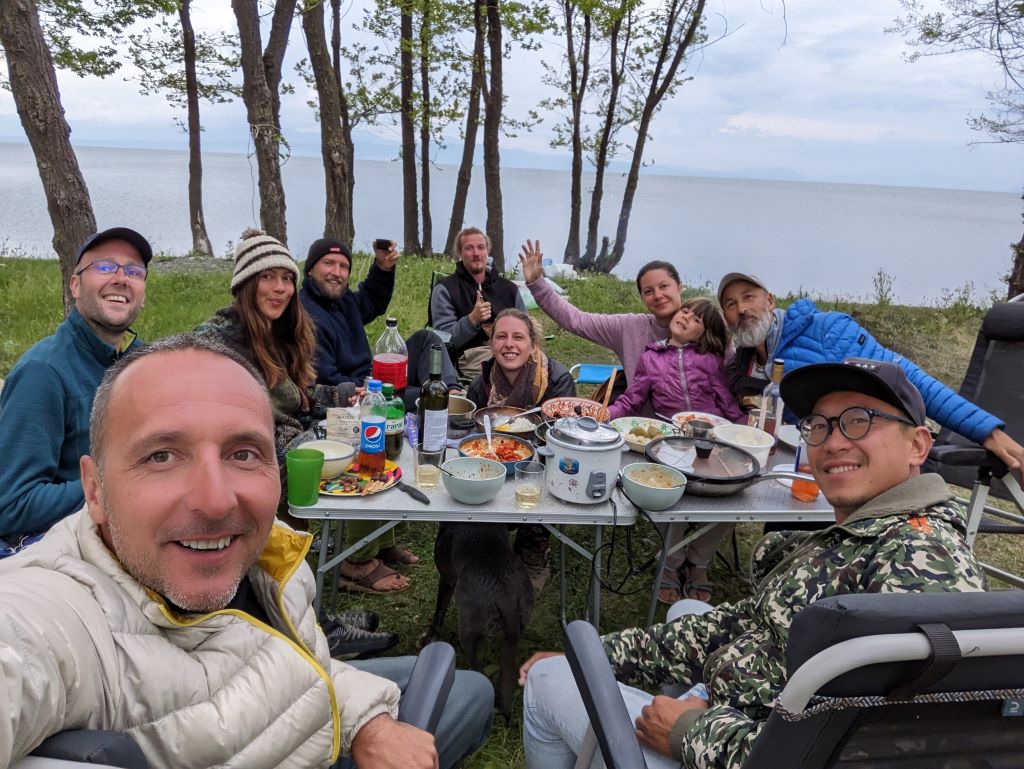
The trees, the mountains, the rivers, the animals, even the TV interview we had on the trip might one day escape my memory, but the time when we danced around the campfire with the cowherds, when we partied a fizzy hot spring with the villagers, and when we exchanged good energies with the fellow travellers, will stay in my mind forever. I will always be able to come back to those moments and feel the warmth and happiness.
After about 450 days and 20 countries, we came back to where we started, repairing the car and preparing for winter. We are very happy to see old friends again but the house now feels too big and the days too quiet. The clouds looks a bit grey and gloomy. I sit in my room writing this article but my thoughts go back to the trip, to our van life and to the encounters. Well, the story has to be continued. In spring we will start a new trip.
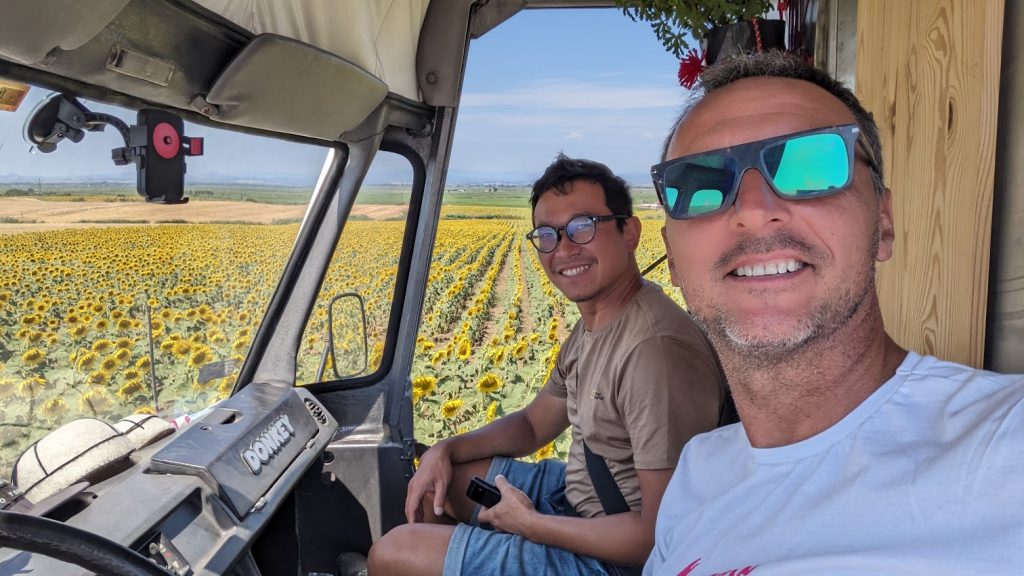
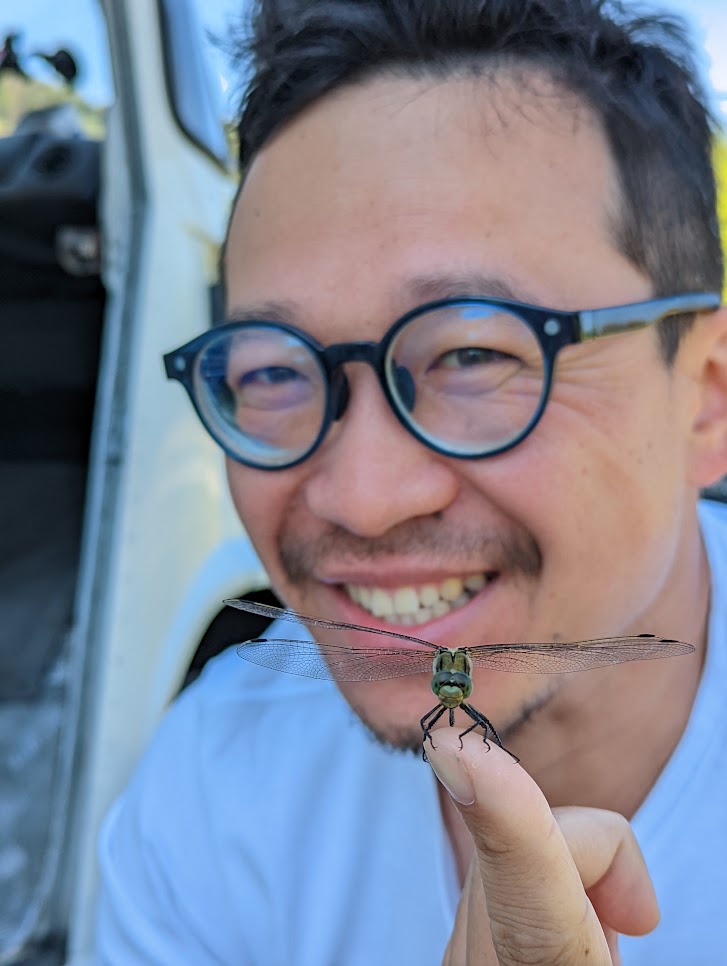
Chieh Hsu completed his doctoral research in 2010 in Mikael Simons’ group at the MPI for Experimental Medicine. He was a Principle Investigator at the University of Kent in England before he worked at the pharmaceutical company Almac in Northern Ireland. He and his partner, Richard, are planning their next trip to further enjoy van life.
More on their trip: https://www.instagram.com/donkeys_in_the_van/
Chieh’s music: https://music.chiehhsu.uk/
Chieh’s career: https://uk.linkedin.com/in/chieh-hsu-70514154
